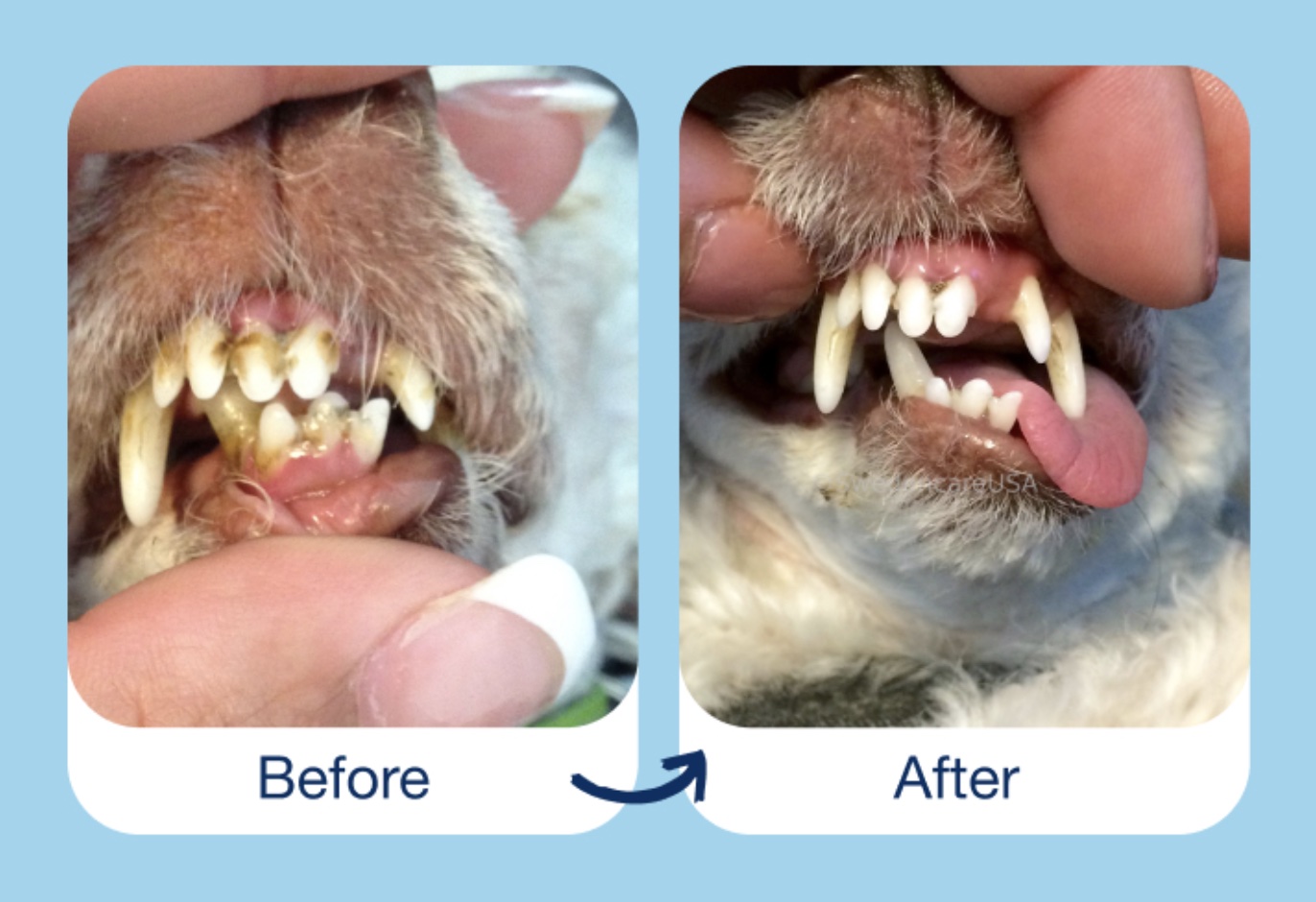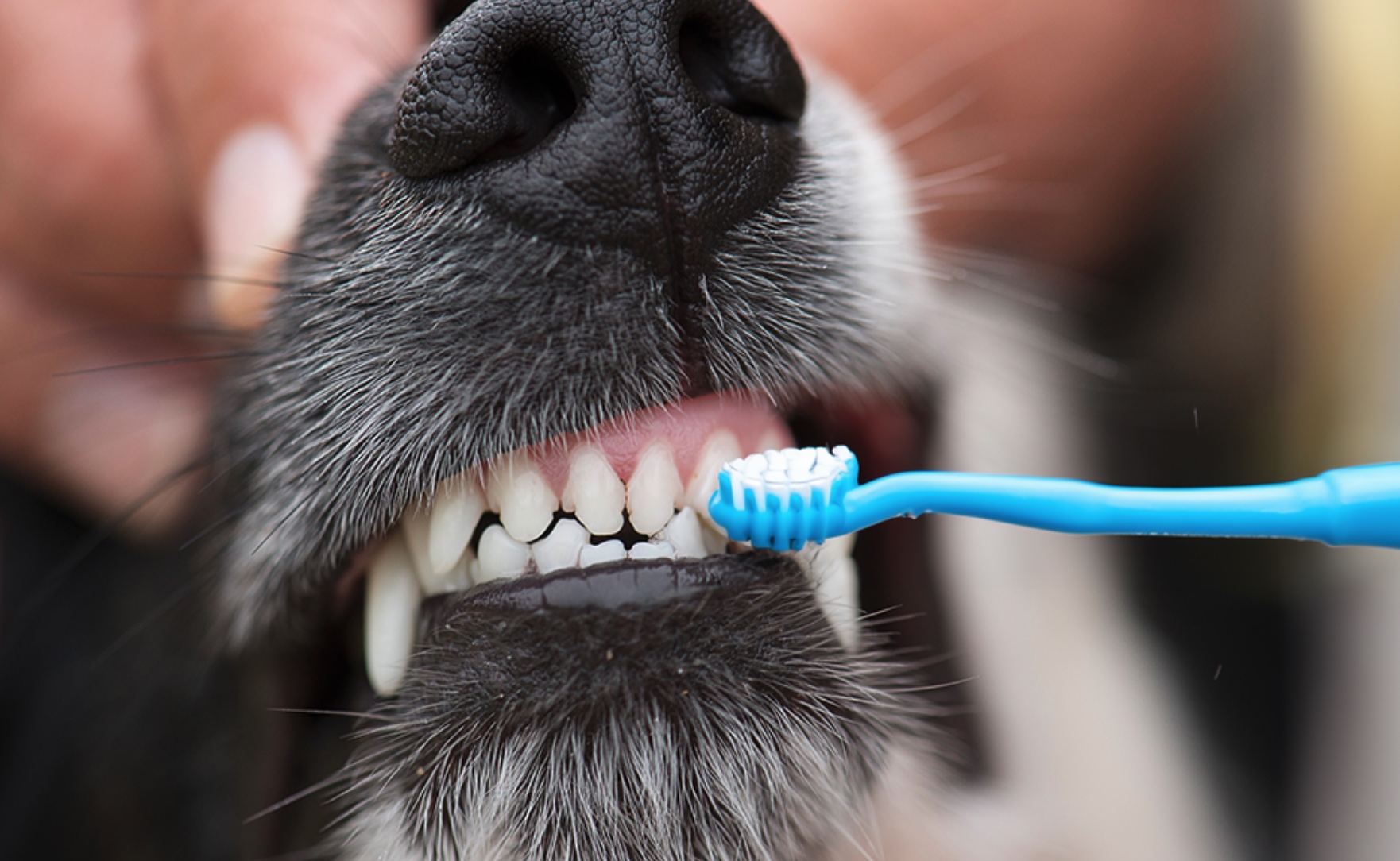Everything You Need to Know About Dog Teeth Cleaning
In this article:
Keeping your dog’s teeth clean is essential for their overall health and happiness. Proper dental care can prevent painful issues, reduce the risk of systemic diseases, and keep your furry friend feeling their best. Here’s a comprehensive guide to dog teeth cleaning, including tips, techniques, and why it’s so important.
Why Is Dog Teeth Cleaning Important?
Much like humans, dogs can suffer from plaque buildup, gum disease, and tooth decay if their dental hygiene is neglected. According to veterinarians, untreated dental issues can lead to more severe health problems, including kidney, liver, and heart disease. Regular cleaning not only protects your pet’s teeth but also enhances their quality of life by preventing discomfort and pain.
How to Clean Your Dog’s Teeth at Home
While professional cleanings are vital, there are several ways to maintain your dog’s dental health at home:
1) Brushing Their Teeth: Use a dog-specific toothbrush and toothpaste. Human toothpaste can be harmful to dogs, so always choose a pet-safe option. Aim to brush your dog’s teeth at least two to three times a week. Read our brushing guide for dogs here.
2) Dental Treats and Chews: These products are designed to reduce plaque and freshen breath. Look for items accepted by the Veterinary Oral Health Council (VOHC) for added assurance. What is VOHC?
3) Dental Toys: Chewing is a natural behavior for dogs that can help scrape away plaque. Opt for toys specifically made for dental health.
4) Use ProDen PlaqueOff®: Our ProDen PlaqueOff® products are an easy and effective way to support your dog’s dental health. From powders to chews, they work to naturally reduce plaque buildup and improve overall oral hygiene.
(Image: After 3 Months of Using ProDen PlaqueOff®)

Signs Your Dog Needs Dental Care
It’s important to recognize the signs that your dog may need dental attention. Common indicators include:
• Bad breath. (Read how to treat bad breath in dogs here)
• Yellow or brown tartar buildup
• Red, swollen, or bleeding gums
• Difficulty eating or chewing
• Excessive drooling
If you notice any of these signs, consult your veterinarian as soon as possible.
Professional Dog Teeth Cleaning
For a thorough clean, your dog will need professional dental care from a veterinarian. This involves a deep cleaning under anesthesia to remove tartar and address any dental issues. The cost of professional cleanings varies but typically ranges from $300 to $700, depending on your location and your dog’s specific needs.
Tips for Making Teeth Brushing Easier
Brushing your dog’s teeth doesn’t have to be a struggle. Here are some tips to make the process smoother:
• Start early: Introduce toothbrushing when your dog is a puppy.
• Use rewards: Treats and praise can make the experience positive.
• Take it slow: Begin by letting your dog get used to the toothbrush and toothpaste.
• Make it routine: Brush their teeth at the same time each day to create a habit.
The Bottom Line
Dog teeth cleaning is an essential part of responsible pet care. By combining professional cleanings with at-home maintenance like brushing and using dental products, you can ensure your dog’s teeth stay healthy and strong.
Explore our full range of dental care solutions, including ProDen PlaqueOff®, to support your pet’s oral health naturally and effectively.
Learn more about what ProDen PlaqueOff® product you sould use here
Regular cleaning prevents plaque buildup, gum disease, and tooth loss. Poor oral hygiene can lead to serious health issues like heart, kidney, and liver disease.
Brush with dog-safe toothpaste, use dental chews, toys, and water additives like ProDen PlaqueOff® to reduce plaque and freshen breath.
Bad breath, tartar buildup, red or swollen gums, difficulty eating, and excessive drooling indicate dental problems.
Most dogs need a vet cleaning once a year, but frequency depends on age, breed, and home care routine.
Prioritize Your Pet’s Oral Health
Oral health is vital to your pet's overall wellbeing, yet many pet parents face challenges like brushing difficulties or lack of awareness.

Keeping your dog’s teeth clean is essential for their overall health and happiness. Proper dental care can prevent painful issues, reduce the risk of systemic diseases, and keep your furry friend feeling their best. Here’s a comprehensive guide to dog teeth cleaning, including tips, techniques, and why it’s so important.
Why Is Dog Teeth Cleaning Important?
Much like humans, dogs can suffer from plaque buildup, gum disease, and tooth decay if their dental hygiene is neglected. According to veterinarians, untreated dental issues can lead to more severe health problems, including kidney, liver, and heart disease. Regular cleaning not only protects your pet’s teeth but also enhances their quality of life by preventing discomfort and pain.
How to Clean Your Dog’s Teeth at Home
While professional cleanings are vital, there are several ways to maintain your dog’s dental health at home:
- Brushing Their Teeth: Use a dog-specific toothbrush and toothpaste. Human toothpaste can be harmful to dogs, so always choose a pet-safe option. Aim to brush your dog’s teeth at least two to three times a week.
- Dental Treats and Chews: These products are designed to reduce plaque and freshen breath. Look for items approved by the Veterinary Oral Health Council (VOHC) for added assurance.
- Water Additives: Adding a dental solution to your dog’s water can help break down plaque and tartar over time. These are a simple and effective addition to your pet’s routine.
- Dental Toys: Chewing is a natural behavior for dogs that can help scrape away plaque. Opt for toys specifically made for dental health.
- ProDen PlaqueOff: Our ProDen PlaqueOff® products are an easy and effective way to support your dog’s dental health. From powders to chews, they work to naturally reduce plaque buildup and improve overall oral hygiene.
Signs Your Dog Needs Dental Care
It’s important to recognize the signs that your dog may need dental attention. Common indicators include:
- Bad breath
- Yellow or brown tartar buildup
- Red, swollen, or bleeding gums
- Difficulty eating or chewing
- Excessive drooling
If you notice any of these signs, consult your veterinarian as soon as possible.
Professional Dog Teeth Cleaning
For a thorough clean, your dog will need professional dental care from a veterinarian. This involves a deep cleaning under anesthesia to remove tartar and address any dental issues. The cost of professional cleanings varies but typically ranges from $300 to $700, depending on your location and your dog’s specific needs.
Tips for Making Teeth Brushing Easier
Brushing your dog’s teeth doesn’t have to be a struggle. Here are some tips to make the process smoother:
- Start early: Introduce toothbrushing when your dog is a puppy.
- Use rewards: Treats and praise can make the experience positive.
- Take it slow: Begin by letting your dog get used to the toothbrush and toothpaste.
- Make it routine: Brush their teeth at the same time each day to create a habit.
The Bottom Line
Dog teeth cleaning is an essential part of responsible pet care. By combining professional cleanings with at-home maintenance like brushing and using dental products, you can ensure your dog’s teeth stay healthy and strong.
Explore our full range of dental care solutions, including ProDen PlaqueOff®, to support your pet’s oral health naturally and effectively.







